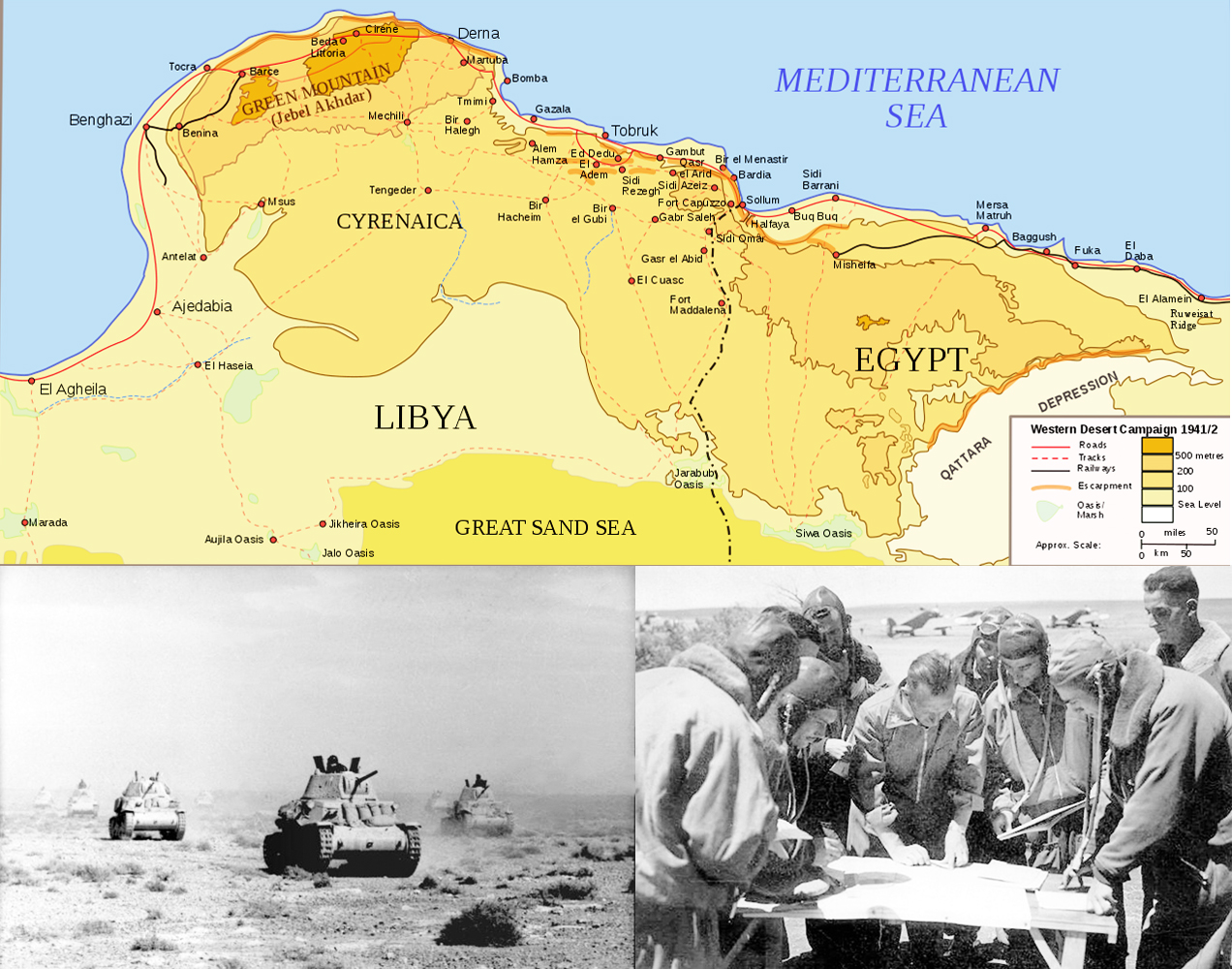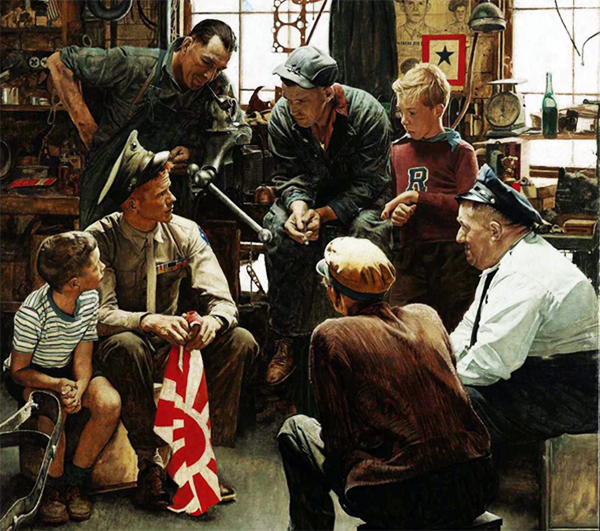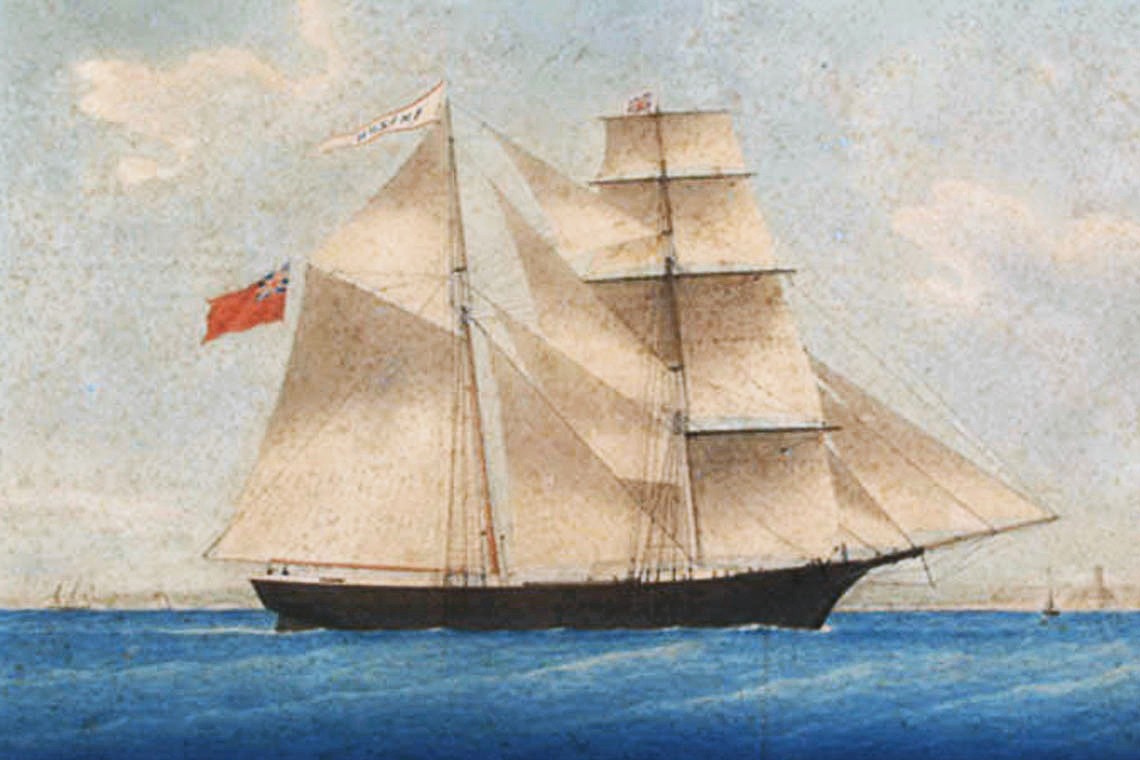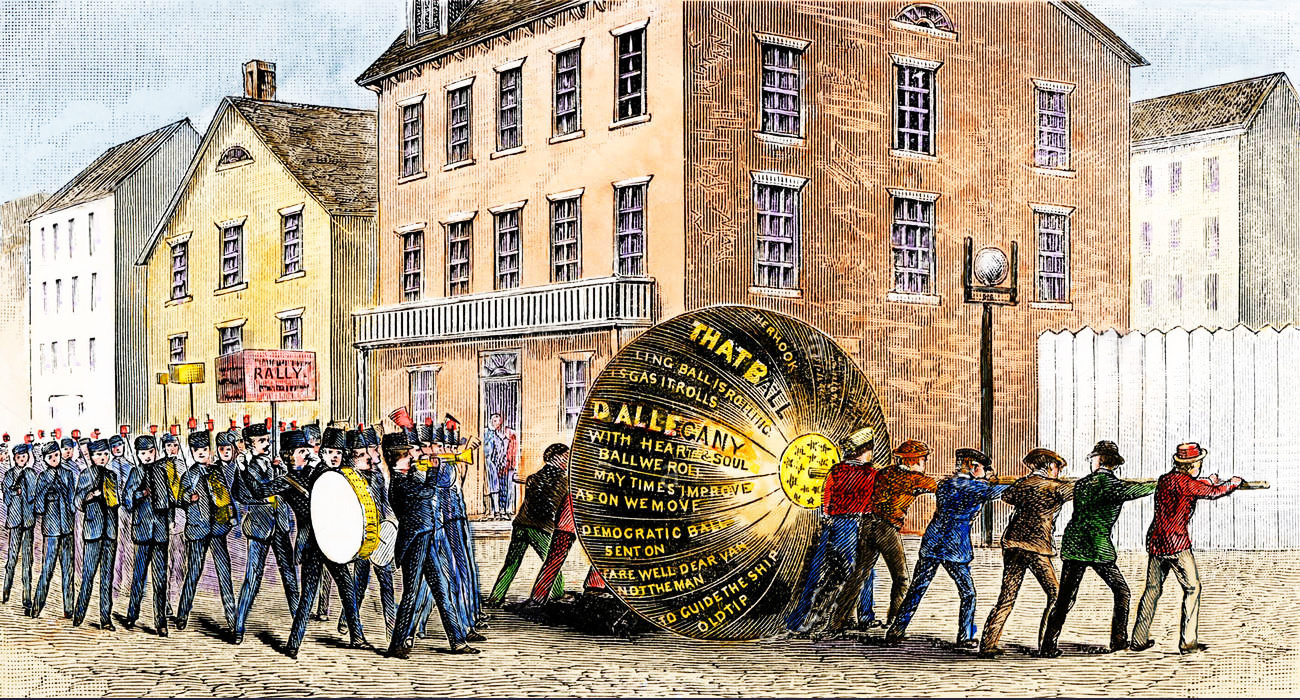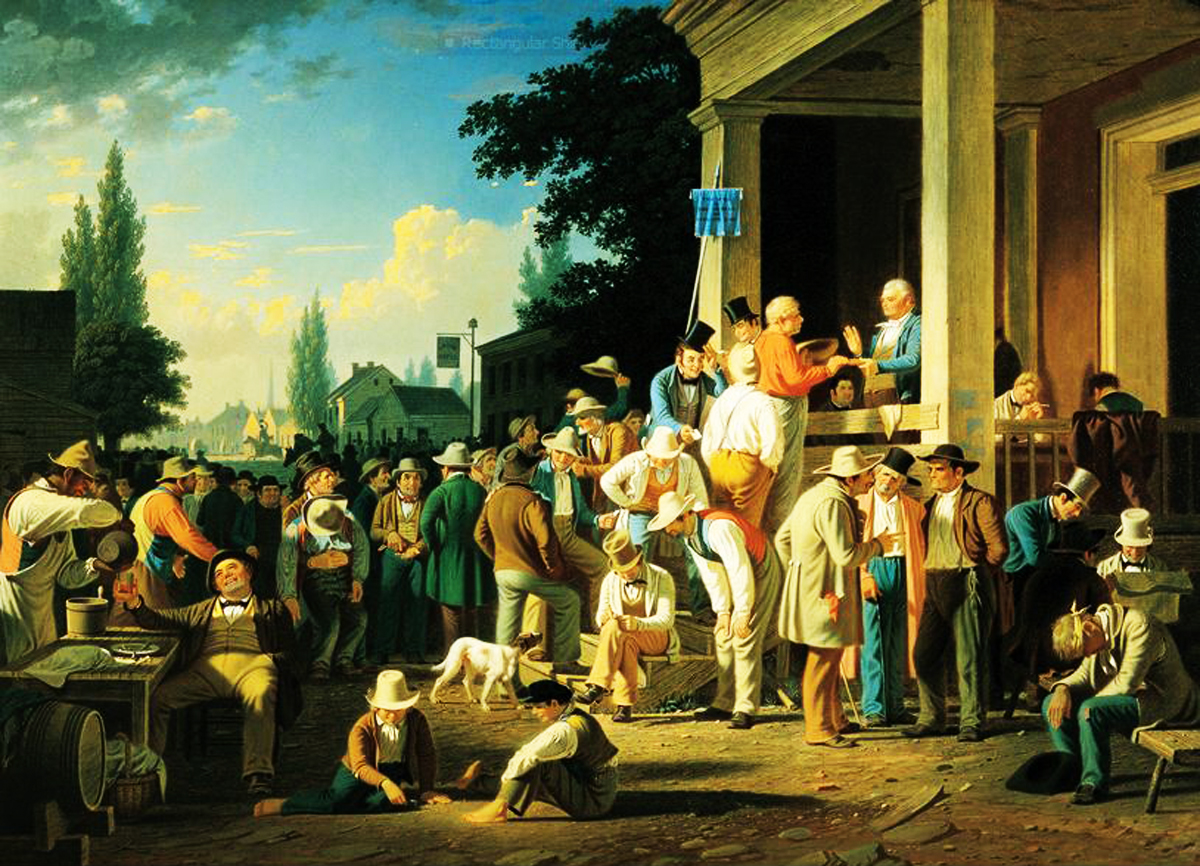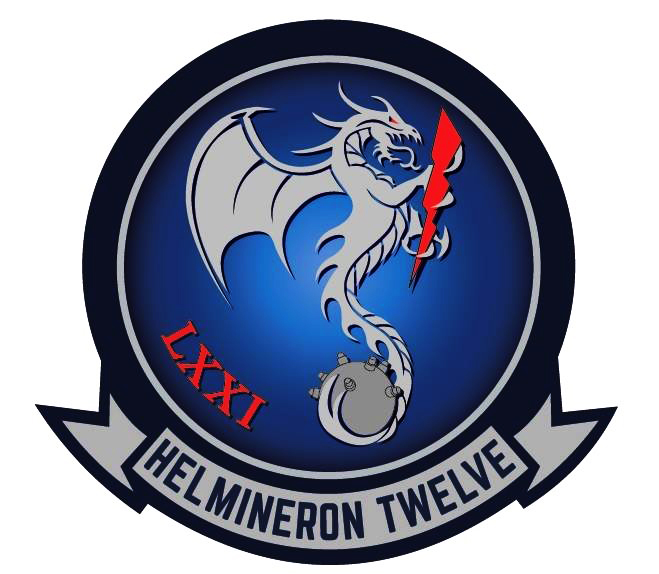
Second Battle of El Alamein: General Field Marshal Erwin Rommel begins a retreat of his forces after a costly defeat on November 04, 1942
Second Battle of El Alamein: General Field Marshal Erwin Rommel begins a retreat of his forces after a costly defeat: Fought near the western frontier of Egypt between October 23, and November 04, 1942, El Alamein was the climax and turning point of the North African campaign of World War Two (1939-45). The Axis army of Italy and Germany suffered a decisive defeat by the British Eighth Army.
On November 2nd, Operation Supercharge was launched at El Alamein, Egypt, destroying many Axis tanks and guns. Axis tanks counterattacked at 1100 hours, which failed to stop the Allied advances. During the night, Rommel requested permission from Hitler to fall back, which was denied on the next day.
On November 4th, Disobeying a direct order by Adolf Hitler, General Field Marshal Erwin Rommel begins a retreat of his forces after a costly defeat - The retreat would ultimately last five months.
The Context
Conflict in North Africa had been ignited in 1940 by Italy’s invasion of Egypt from its colony of Libya. This threatened Britain’s vital strategic assets, the Suez Canal and Persian oil fields. However, when the Italians were defeated, Germany intervened on behalf of its ally in the spring of 1941.
Under the bold leadership of General Rommel, the Axis enjoyed startling successes, recapturing Libya and threatening Egypt. Yet, by late 1941, when Rommel’s forces had overstretched their supply lines, they were forced to fall back in the face of a determined British offensive. In 1942 a revived Axis effort saw Rommel defeat the British at Gazala and capture Tobruk.
Stand at El Alamein
For a while it seemed that Rommel would link up with the Germans advancing in the Caucasus and so overrun the whole Middle East. The British conducted a chaotic retreat into Egypt, but rallied their battered army and made a stand at the First Battle of El Alamein. This was a position that, unlike others in the desert, could not be turned by a flanking manoeuvre. It bordered both the sea and the Qattara Depression, a sea of quicksand impassable to mechanised forces.
The summer of 1942 saw the defeat of Rommel’s final efforts to breakthrough into Egypt. The initiative now lay with the British. They planned another offensive that would finally end the Axis threat to the Middle East.
The Armies
Lieutenant-General Bernard Law Montgomery (1887-1976) was one of the most capable and controversial British commanders. In August 1942 he was appointed Eighth Army's commander and immediately set about transforming its fighting spirit.
At Alamein he commanded over 190,000 men from across the British Empire, Greece, Poland and France. They were equipped with over 1,000 tanks, 900 artillery pieces and 1,400 anti-tank guns.
Desert Fox
Field Marshal Erwin Rommel (1891-1944) was already famous for his brilliant generalship during the battles for France and North Africa. Rommel was a master of desert warfare, earning the nickname ‘Desert Fox’. Exuding frenetic energy and leading from the front, he inspired his troops to great feats of heroism and endurance.
His instinct for handling armoured formations, combined with the qualitative superiority of German units, enabled the ‘Afrikakorps’ to consistently outmatch the Allies, often against heavy odds. At Alamein he commanded 116,000 German and Italian soldiers, 540 tanks, 500 artillery pieces and 490 anti-tank guns.
The Battle
The Axis forces were once more in a critical supply situation. Lacking the fuel and mechanised forces to fight a mobile battle Rommel instead constructed strong defensive positions protected by deep minefields, which he nicknamed the ‘devil’s gardens’.
Realising the strength of the Axis defences, Montgomery resisted the impatient pleas of British Prime Minister Winston Churchill for an early attack. Instead he set about building up his forces, improving the morale and training of his troops, ensuring that he had superior numbers of men, tanks, guns and aircraft.
Lightfoot
Having assembled a powerful multinational Allied force, Montgomery unleashed his offensive on the night of October 23rd with a spectacular artillery barrage. In the early hours of 24 October British infantry and engineers began Operation Lightfoot, a painstaking and hazardous process of creating two channels in the minefields, through which the armoured forces were to advance.
Crumbling
The British then established a forward line from where the Axis forces would be engaged and worn down. This battle of attrition, euphemistically termed ‘crumbling’ by Montgomery, involved brutal close-quarter fighting in which the soldiers were tested in a maelstrom of heat, noise and horror.
While they were able to beat off Axis counter-attacks, British efforts were hampered as their tanks were held up in the congested minefield corridors and suffered punishing losses from enemy anti-tank guns.
Supercharge
Despite the difficulties, Montgomery held his nerve. He pressed home the attrition of the enemy forces and launching a diversionary attack to draw in scarce Axis reserves. He then paused and regrouped before launching his final attack, codenamed Operation Supercharge, on the night of November 1st-2nd. After several more days of severe fighting the British achieved a decisive breakthrough on November 4th.
While the British captured the bulk of the Axis infantry, Montgomery’s caution allowed the motorised portion to escape and live to fight another day. Nevertheless, the British had won a remarkable victory and Montgomery began pursuing his beaten foe back into Libya and Tunisia.
The Consequences
El Alamein was the first clear-cut and irreversible victory inflicted by the British Army upon the Axis. Coming after years of frustrating setbacks, this was a boost to British morale. Victory proved that the problems that had plagued the Army for years had at last been overcome and that its equipment, tactics, generalship and fighting spirit were a match for the Axis.
For Churchill, the victory was vital for re-establishing British prestige before America reduced Britain to the role of junior partner in the western alliance. This was why he had been so anxious to instigate the battle before Operation Torch, the Allied landings on the coast of Algeria and Morocco, began.
Victory
The landings began on November 8th and forced the Axis to fight on two fronts. With the Allies also prevailing in the naval and air wars raging in the Mediterranean, the Axis position in North Africa was now untenable.
Despite this, Hitler belatedly ordered a massive re-enforcement, which enabled the Axis to fight a defensive campaign in Tunisia into 1943. Although they fought a tenacious rearguard, the Axis forces were in an impossible position and in May were forced to surrender, with the loss of around 240,000 prisoners.
The Legacy
Aided by Churchill’s rhetoric, which extolled it as ‘the end of the beginning’ of the war, El Alamein has become enshrined in British mythology as a great strategic turning point of the war. This may be an overstatement given that North Africa was only a sideshow compared to the titanic battles waged on the Eastern and Western Fronts. However, the battle boosted national morale and became one of the most celebrated victories of the war.
Alamein also established the reputation of Montgomery. Using his talent for self-publicity, he claimed all the credit for the victory. This made him a household name and secured him prestigious commands in Italy and North-West Europe. While he was able to cement his image as a national hero, Montgomery’s conduct during the battle remains the subject of debate.
National Army Museum / Wikipedia / Encyclopedia Britannica /
History Channel / Imperial War Museum (Great Britain) / World War II Database /
Second Battle of El Alamein: General Field Marshal Erwin Rommel begins a retreat of his forces after a costly defeat on November 04, 1942 (YouTube) 

This Day in History October 28
• 1429 Armagnac–Burgundian Civil War: Joan of Arc liberates Saint-Pierre-le-Moûtier.
• 1576 Eighty Years' War: Sack of Antwerp: In Flanders, Spain captures Antwerp (after three days the city is nearly destroyed).
• 1783 Wolfgang Amadeus Mozart's Symphony No. 36 is performed for the first time in Linz, Austria.
• 1847 Sir James Young Simpson, a Scottish physician, discovers the anaesthetic properties of chloroform.
• 1890 City and South London Railway: London's first deep-level tube railway opens between King William Street and Stockwell.
• 1918 World War I: The Armistice of Villa Giusti: between Italy and Austria-Hungary is implemented.
• 1921 The Saalschutz Abteilung (hall defense detachment) of the Nazi Party is renamed the Sturmabteilung (storm detachment) after a large riot in Munich.
• 1921 Japanese Prime Minister Hara Takashi is assassinated in Tokyo.
• 1922 In Egypt, British archaeologist Howard Carter and his men find the entrance to Tutankhamun's tomb in the Valley of the Kings.
• 1924 Nellie Tayloe Ross of Wyoming becomes the first female elected as governor in the United States.
• 1939 World War II: U.S. President Franklin D. Roosevelt orders the implementation of the Neutrality Act of 1939, allowing cash-and-carry purchases of weapons by belligerents.
• 1956 Hungarian Revolution: Soviet troops enter Hungary to end the Hungarian revolution against the Soviet Union.
• 1960 Dr. Jane Goodall observes chimpanzees creating tools, the first-ever observation in non-human animals.
• 1962 Operation Fishbowl: The United States concludes its final above-ground nuclear weapons testing series.
• 1979 Iran Hostage Crisis: A group of Iranian college students overruns the U.S. embassy in Tehran and takes 90 hostages.
• 1980 Ronald Reagan is elected the 40th President of The United States, defeating incumbent Jimmy Carter.

